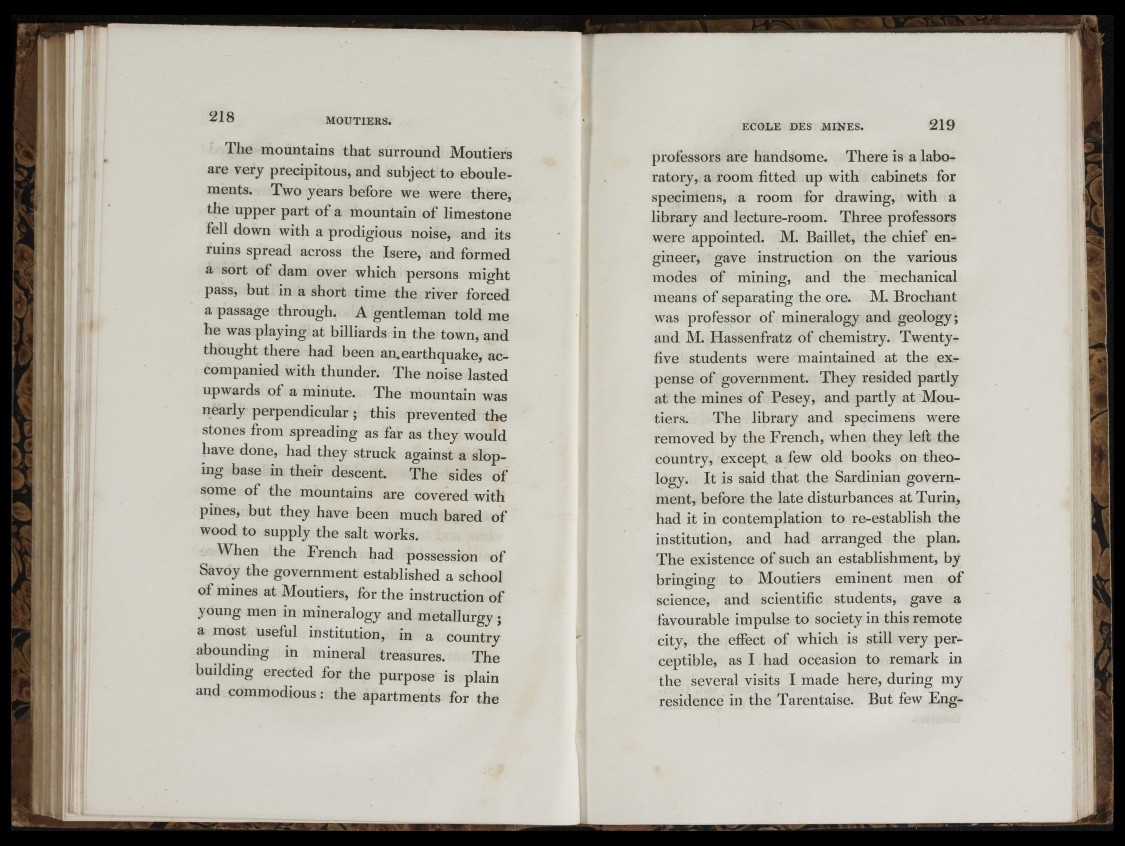
î
î ■V
The mountains that surround Moutiers
are very precipitous, and subject to eboulements.
Two years before we were there,
the upper part of a mountain of limestone
fell down with a prodigious noise, and its
ruins spread across the Isere, and formed
a sort of dam over which persons might
pass, but in a short time the river forced
a passage through. A gentleman told me
he was playing at billiards in the town, and
thought there had been an. earthquake, accompanied
with thunder. The noise lasted
upwards of a minute. The mountain was
nearly perpendicular; this prevented the
stones from spreading as far as they would
have done, had they struck against a slop-
ing base in their descent. The sides of
some of the mountains are covered with
pines, but they have been much bared of
wood to supply the salt works.
When the French had possession of
Savoy the government established a school
of mines at Moutiers, for the instruction of
young men in mineralogy and metallurgy;
a most useful institution, in a country
abounding in mineral treasures. The
building erected for the purpose is plain
and commodious: the apartments for the
E C O L E D E S M IN E S . 219
professors are handsome. There is a laboratory,
a room fitted up with cabinets for
specimens, a room for drawing, with a
library and lecture-room. Three professors
were appointed. M. Baillet, the chief engineer,
gave instruction on the various
modes of mining, and the mechanical
means of separating the ore. M. Brochant
was professor of mineralogy and geology;
and M. Hassenfratz of chemistry. Twenty-
five students were maintained at the expense
of government. They resided partly
at the mines of Pesey, and partly at Moutiers.
The library and specimens were
removed by the French, when they left the
country, except, a few old books on theology.
It is said that the Sardinian government,
before the late disturbances at Turin,
had it in contemplation to re-establish the
institution, and had arranged the plan.
The existence of such an establishment, by
bringing to Moutiers eminent men of
science, and scientific students, gave a
favourable impulse to society in this remote
city, the effect of which is still very perceptible,
as I had occasion to remark in
the several visits I made here, during my
residence in the Tarentaise. But few Fng